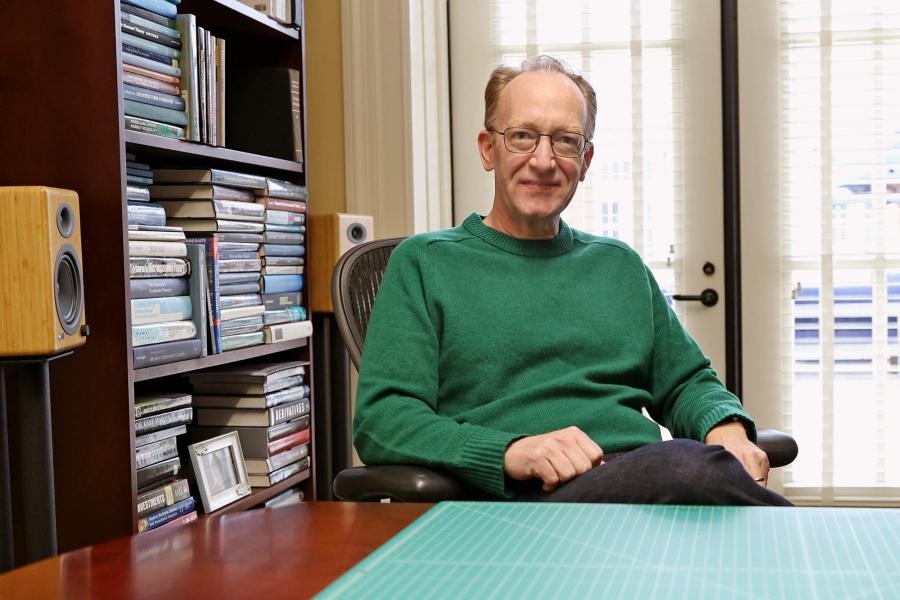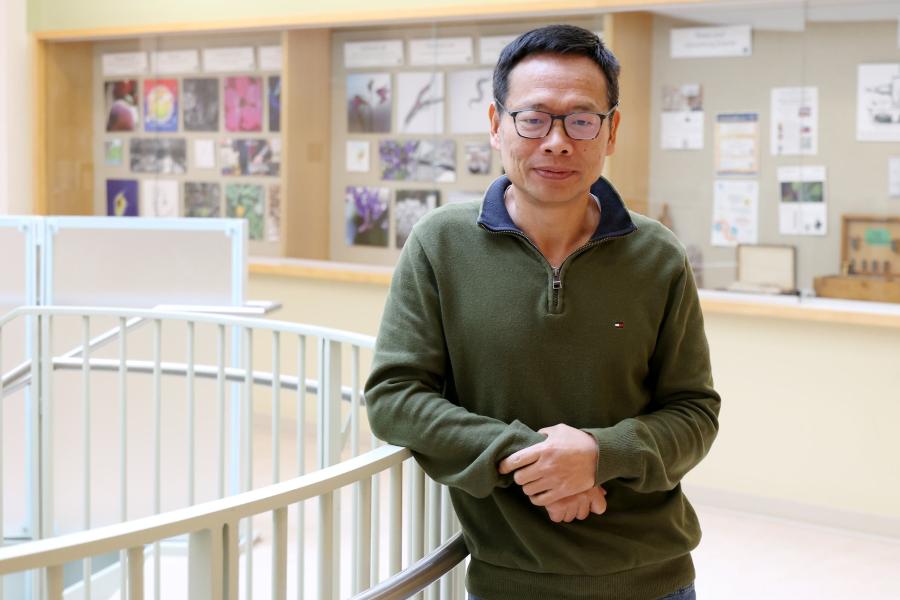Erin Clabough was heading east on Virginia’s Interstate 64 Monday just after noon when she picked up her phone.
She was in the passenger seat of her blue Jeep Cherokee, heading to Virginia Beach for the day with her daughters Avery and Elsa. In the back were three beach chairs, three towels, an umbrella and a surfboard.

Clabough is from Virginia Beach and loves the ocean. She said she’s learned to love the mountains in Central Virginia. (Photo by Matt Riley, University Communications)
Clabough, a neuroscientist at the University of Virginia, is from Virginia Beach. The ocean has always centered her. “I think it makes me feel connected to something that’s bigger than me,” she said.
In the last two years, the professor of psychology earned her 500-hour yoga teacher and Reiki master teacher certifications. During the pandemic, Clabough also deepened her meditation practice. “I think a lot of people started doing some deep-dive stuff into ‘Why are things the way they are? Is this how I want them to be? Is this who I want to be?’” she said. “I was no exception to that.”
It helped her be a better parent to her four children, and also to teach at UVA, where she has led classes since 2018.
Meditation, optional
At the end of the pandemic, Clabough decided – based on her experience and studies on the benefits of mindfulness – to introduce the option of meditation in her neural basis of behavior course. Ninety percent of the class took on the assignment, and 88% reported benefits in lowering stress and anxiety levels.
In an anonymous, follow-up survey, students wrote:
I honestly loved my time of meditation each day. I took time to focus on the good in others & also uplift myself.
It was a fantastic experience and helped me get through a very rough first semester. It helped me to keep loving myself when I did not feel I had a place on campus.
In this class, I felt that my well-being as a student presently and for the future was prioritized. I learned an invaluable skill that I will take with me throughout my life, and truly, I could not be more grateful.
The University recently recognized Clabough’s teaching skills with one of its highest faculty awards, the All-University Teaching Award.
Among the nominators was her student Boris Nakashyan. “She’s definitely a type of professor that is not the biggest fan of traditional, boring, ‘You come in and get lectured for 50 minutes,’ type of presentation,” he said.
Nakashyan was in his first semester in 2022 when she made him an unbelievable offer. “I told her I like to design and create escape rooms, a hobby I started during COVID because I had nothing else to do,” he explained. She invited him to design some puzzles, liked them, and asked Nakashyan to show her teaching assistants how they worked.










